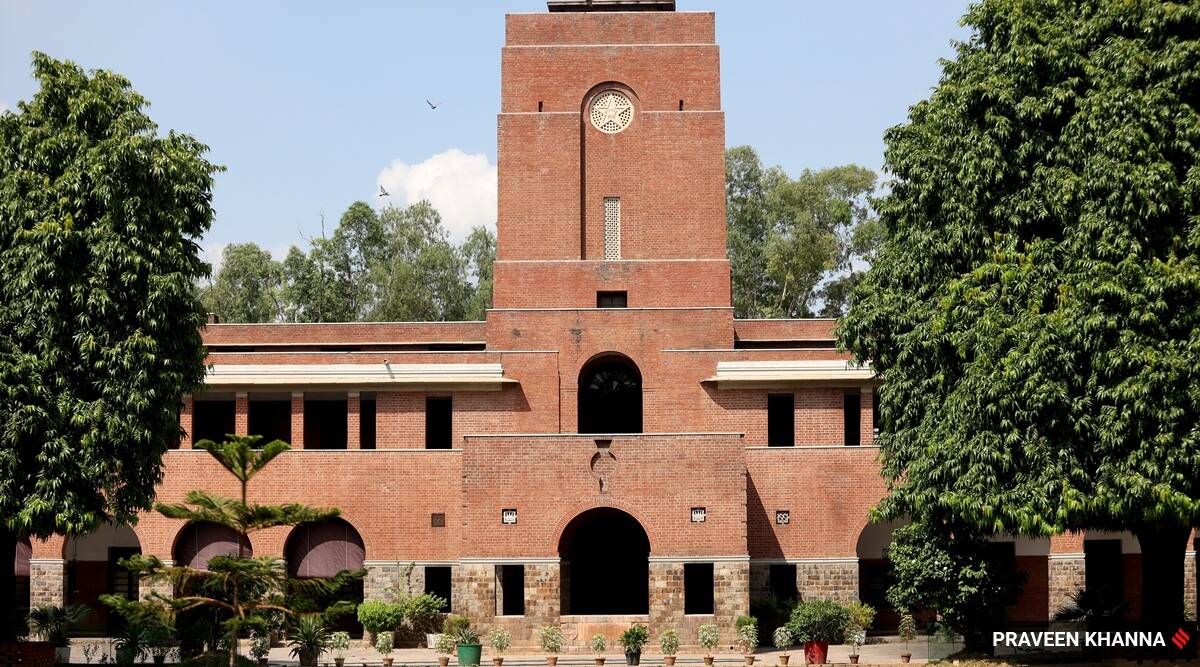 “We find no reason to stay the judgement, therefore the application for interim relief is dismissed,” the bench said. (File image)
“We find no reason to stay the judgement, therefore the application for interim relief is dismissed,” the bench said. (File image)The Supreme Court Wednesday refused to stay the Delhi High Court order asking St Stephen’s College to admit candidates in the unreserved category only based on the Common University Entrance Test (CEUT) results and not interviews.
Dismissing the application filed by Stephen’s seeking interim relief, a bench of Justices Ajay Rastogi and C T Ravikumar said, “We have heard the parties for quite some time for grant of interim relief prayed for by the petitioner… The substantive question raised for consideration was whether the admissions to the open category seats could be made purely on the basis of the CUET or, in addition to it, discretion has to be left with the college/institution for the purpose of preparing the final list for admission to the open category seats. After taking into consideration the judgment impugned before us, we find no reason at this stage to stay operation of the judgment. Consequently, the application for interim relief as prayed for is dismissed.”
The college had decided to follow a 85:15 formula — 85 per cent weightage to the CUET score and 15 per cent to its own interview.
Setting the matter for a detailed hearing in March next year, the bench clarified that “whatever be the action taken pursuant to in the admission process shall remain subject to the final outcome of the present petition”.
The HC in its September 12 order said St Stephen’s cannot conduct interviews for admission of undergraduate students belonging to “non-minority category” and directed it to admit such candidates solely based on the CUET results
Appearing for the college, senior advocate Kapil Sibal argued that it was not ignoring merit but only conducting the interview additionally. “We are taking students from CUET. So we are not ignoring merit,” he said, citing a judgment by a bench presided by Justice D Y Chandrachud which said merit should be socially contextualised.
When the bench asked if it was said in the context of admissions, the counsel clarified that it was stated in the context of OBC reservation.
“If your lordships equate marks with merit, my Article 30 rights are lost,” said Sibal, adding that over and above merit, the college has a right to decide which candidate should fit into the institution. “That’s my right.”
Appearing for DU, Solicitor General Tushar Mehta urged the court not to stay the ruling, saying it would have pan-India ramifications.
The bench asked if the university can trust the college with exercising the discretion of awarding marks in an interview for candidates from minority category, why can’t the same be applied to non-minorities? Mehta said in a lighter vein that the university will be happy to introduce it for both categories if the court so directs.
The counsel appearing for the University Grants Commission pointed out that the SC had in the landmark T M A Pai case said an aided minority institution does not have the same discretion as an unaided minority institution.
The HC in September had asked the college to withdraw its admission prospectus in accordance with DU instructions and issue a public notice declaring the amended admission procedure. After the SC rejected St Stephen’s plea, the college removed its admissions prospectus that had announced that it will give 15% weightage for interviews to all candidates. The prospectus had been up on the website since May.
